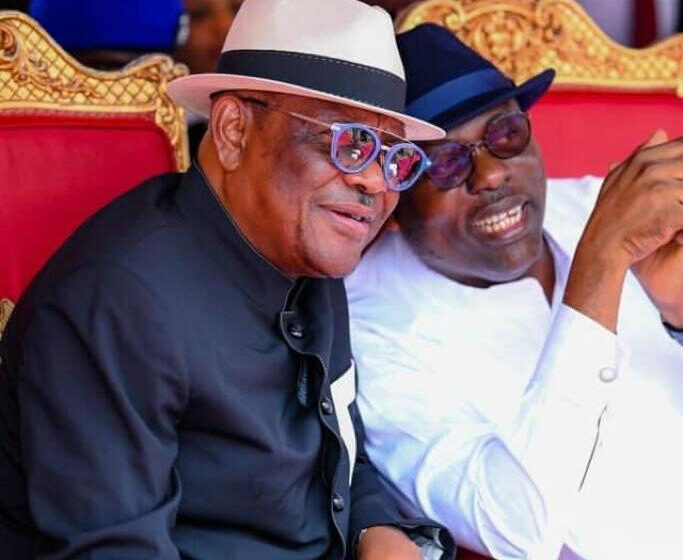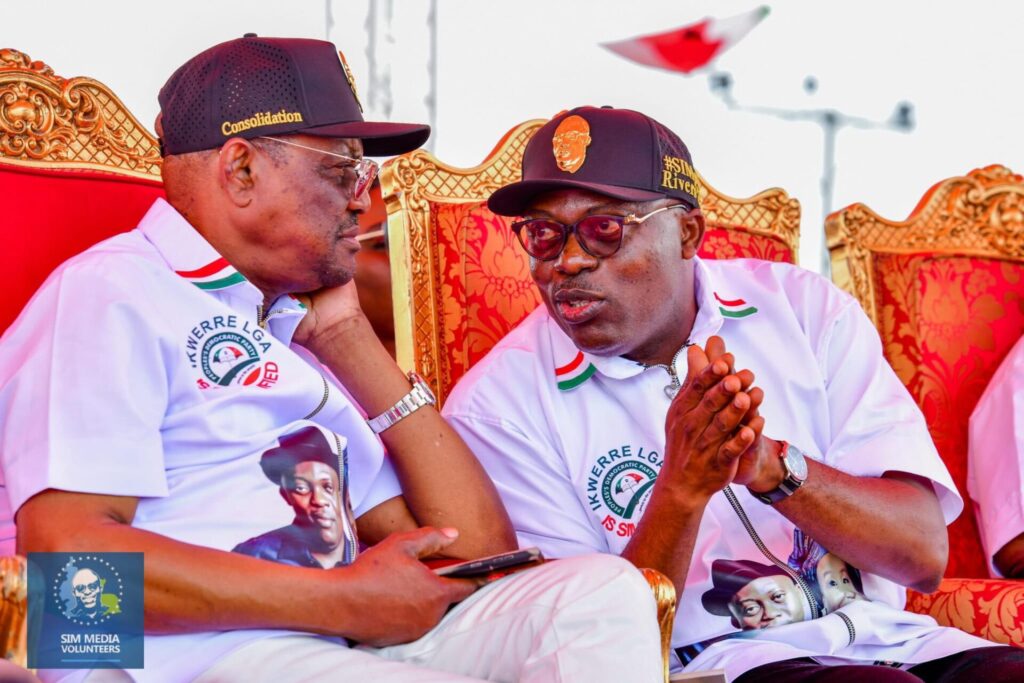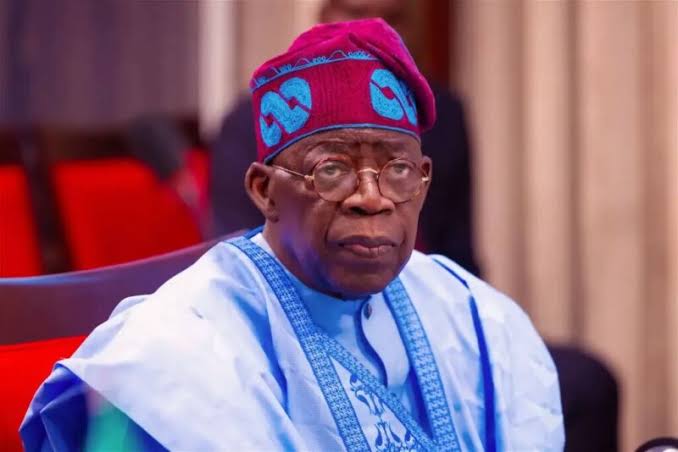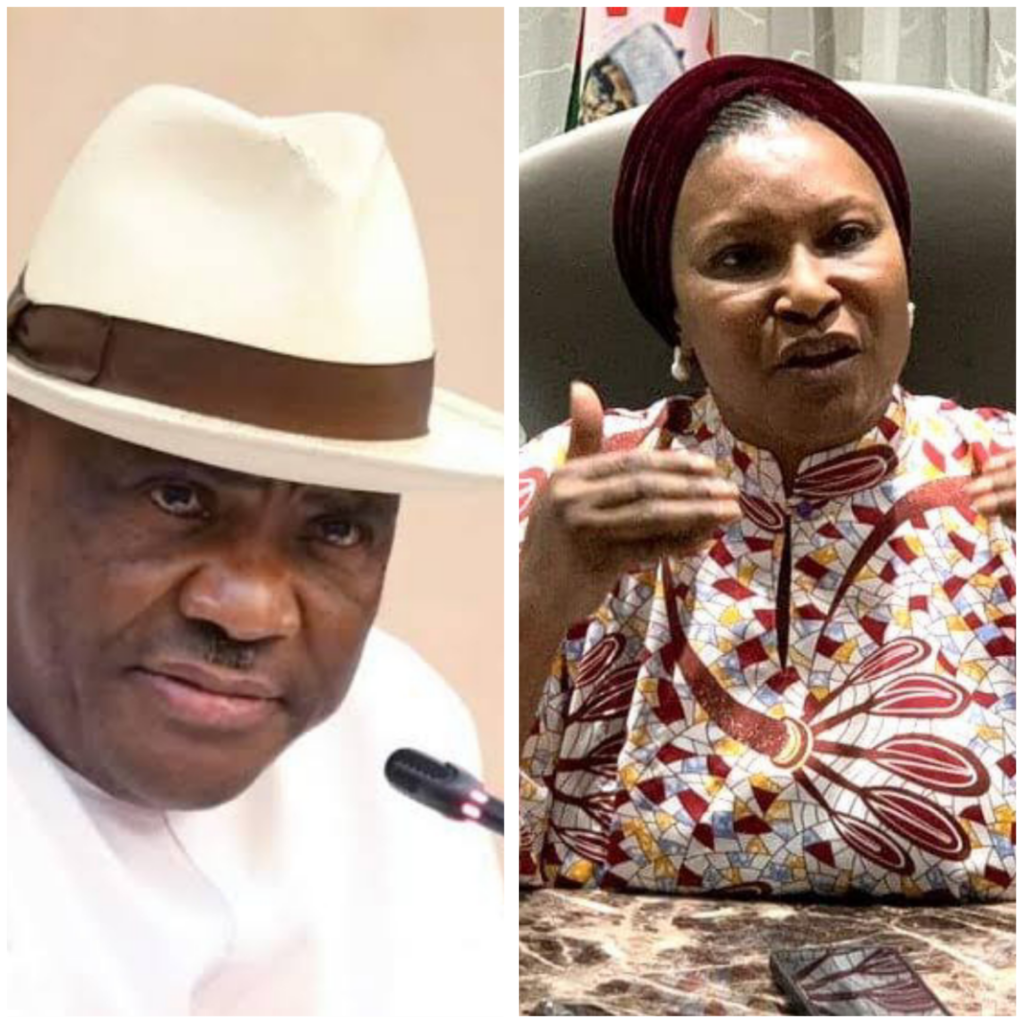From friends to sworn enemies: How Wike, Fubara fell apart

In a land where political tensions ran high, the escalating crisis in Rivers State had legal experts on edge. They spoke fervently about the potential consequences this power struggle could have on the nation’s democracy. The stakes were high, and finding a resolution became of utmost importance.
“The face-off between Governor Siminalayi Fubara and his predecessor and Minister of Federal Capital Territory, Chief Nyesom Wike, is a cause for concern. We must find a resolution to this crisis to preserve the integrity of our democratic system,” warned the legal experts, their voices filled with urgency.

The crisis not only threatened the political landscape but also had dire economic implications, particularly for the impoverished citizens of Rivers State. Experts estimated that the cost of this impasse could reach billions of Naira. The weight of this realization weighed heavily on the experts’ minds.
“If this crisis goes unresolved, it will be the ordinary citizens who suffer the most. The poor people of Rivers State will bear the brunt of the economic fallout, while the politicians continue to engage in power struggles,” cautioned a concerned source, their voice filled with empathy for the marginalized.
Miakpo Emiaso, a retired president of the Area Customary Court in Delta State, drew attention to the unfolding events as a significant threat to Nigeria’s democracy. The demolition of the State House of Assembly served as a stark reminder of the impunity with which politicians handled government affairs.
“What is happening in Rivers State is a real danger to our democracy,” Emiaso stressed, feeling a profound sense of responsibility. “We cannot allow politicians to act with impunity and disregard the institutions that serve as the foundation of our democratic system.”
Moreover, Emiaso commented on the defection of 27 members of the State House of Assembly to the APC, questioning the timing and absence of visible party strife. He questioned the lack of consequences for such actions within Nigeria’s political landscape.
“The defection of these 27 members raises questions about the integrity of our political system. In Nigeria, it seems that defection occurs without consequences, even when it goes against the principles and rules set forth by political parties,” Emiaso lamented, his words filled with disappointment.
Governor Siminalayi Fubara, a dedicated member of the PDP, had once been under the mentorship of Nyesom Wike, the influential Minister. While Fubara showed unwavering loyalty to the PDP, a desire to step out of his mentor’s shadow began to take hold.
Far removed from the grounds of Rivers State and residing in Abuja, Wike’s influence loomed over Fubara. However, a rebellious spirit began to stir within Fubara as he declared, “It’s Fubara time!”, determined to establish his leadership.
The political drama escalated with the ousting of Speaker Edison Ehie, perceived as a move to purge Wike’s loyalists from the assembly. Fubara faced impeachment, leading him to openly confront his detractors. It became a reflection of historical feuds between governors and their successors, echoing the complexities of Nigerian politics.
Amidst the chaos, a power struggle emerged, driven not only by personal ambitions but also intertwined with the intricacies of Nigerian political history. It was a saga marked by conflicts, fallouts, and the eternal struggle for autonomy in the shadow of influential mentors.
And so, as legal experts, citizens, and politicians watched with bated breath, the fate of Rivers State hung in the balance. The resolution to this crisis would determine the future of Nigeria’s democracy, the economic prosperity of its people, and the power dynamics that shaped the nation’s political landscape.
READ ALSO: From Kano election hero to embattled governor: Timeline of Abba Yusuf’s case




